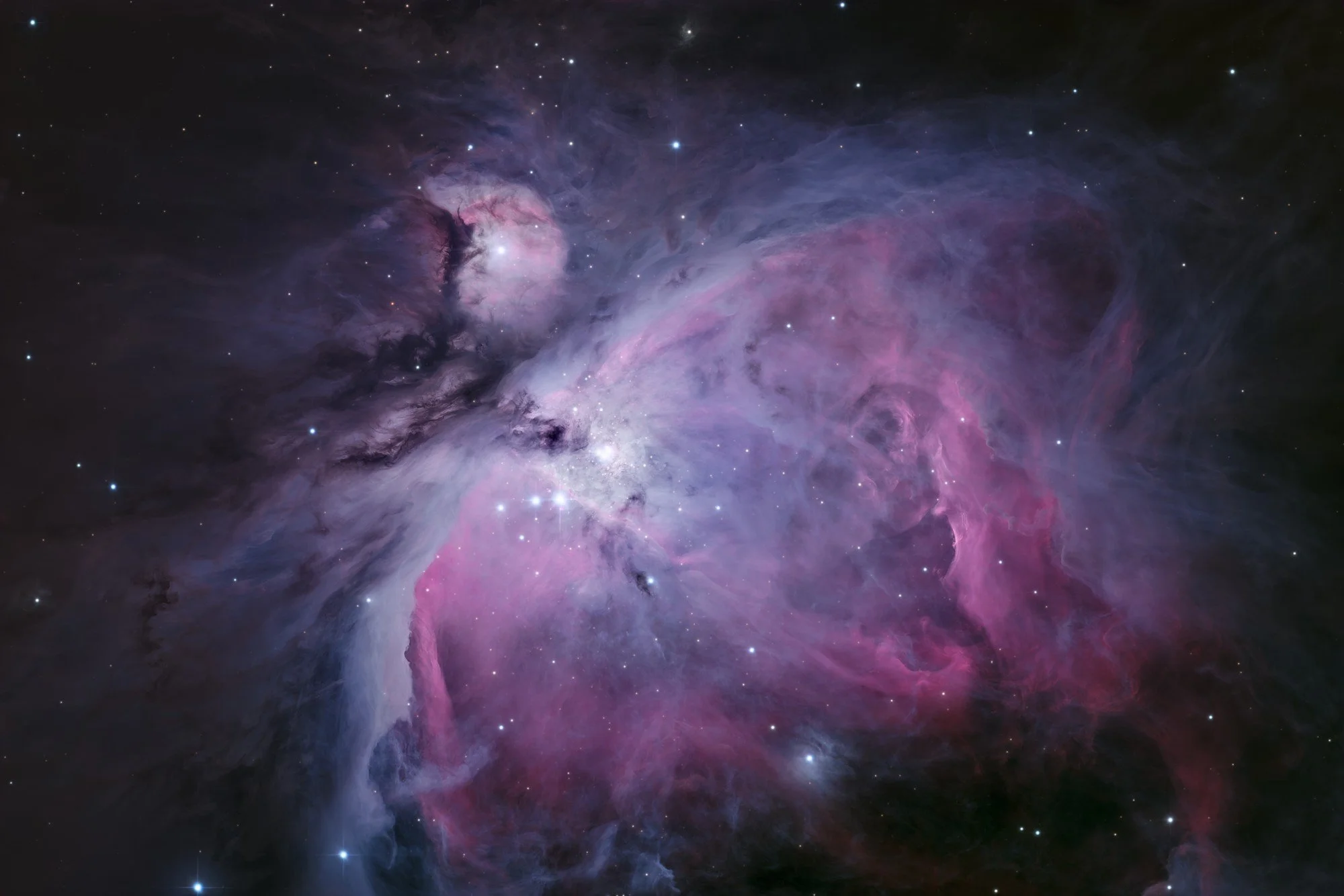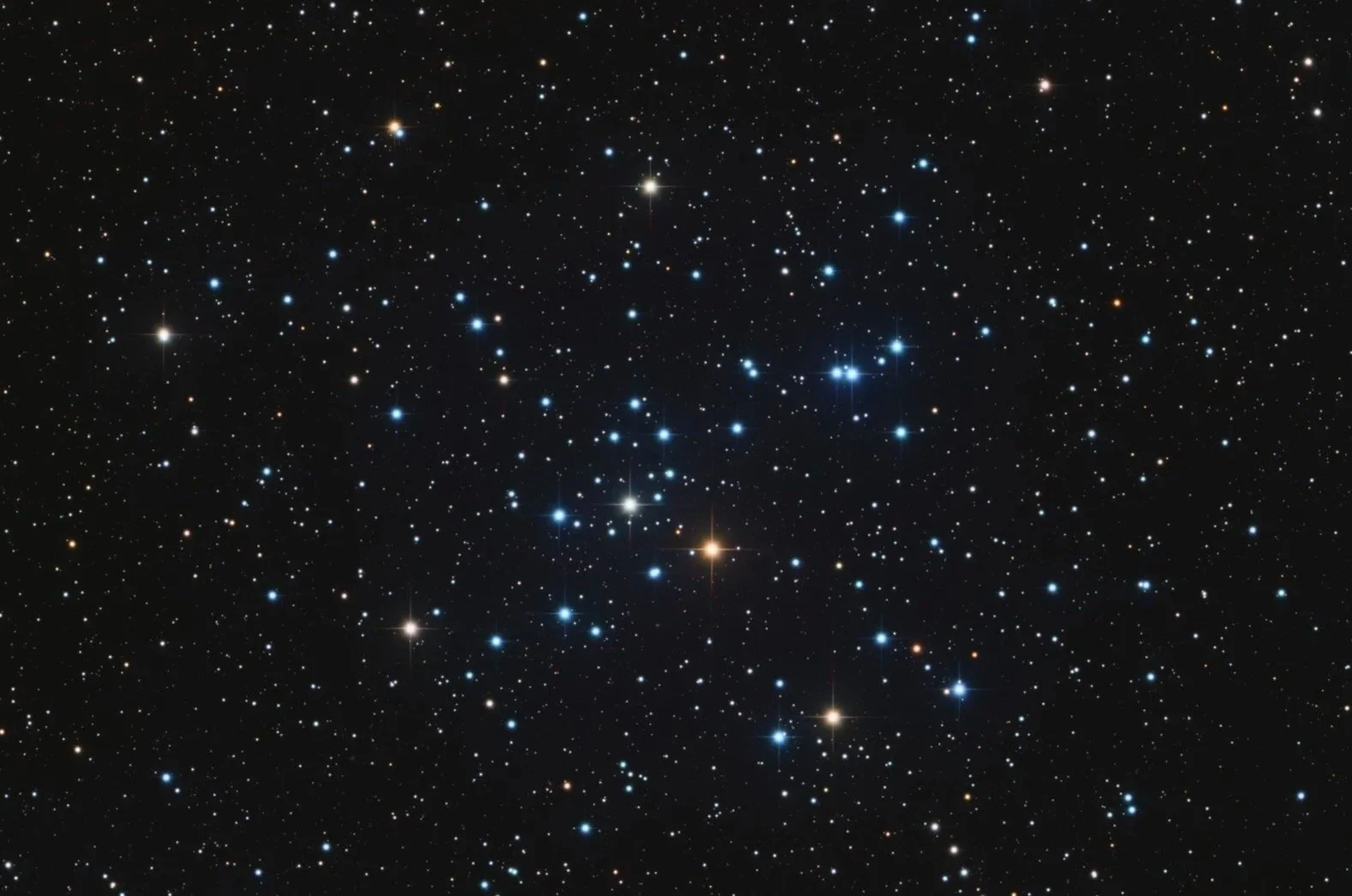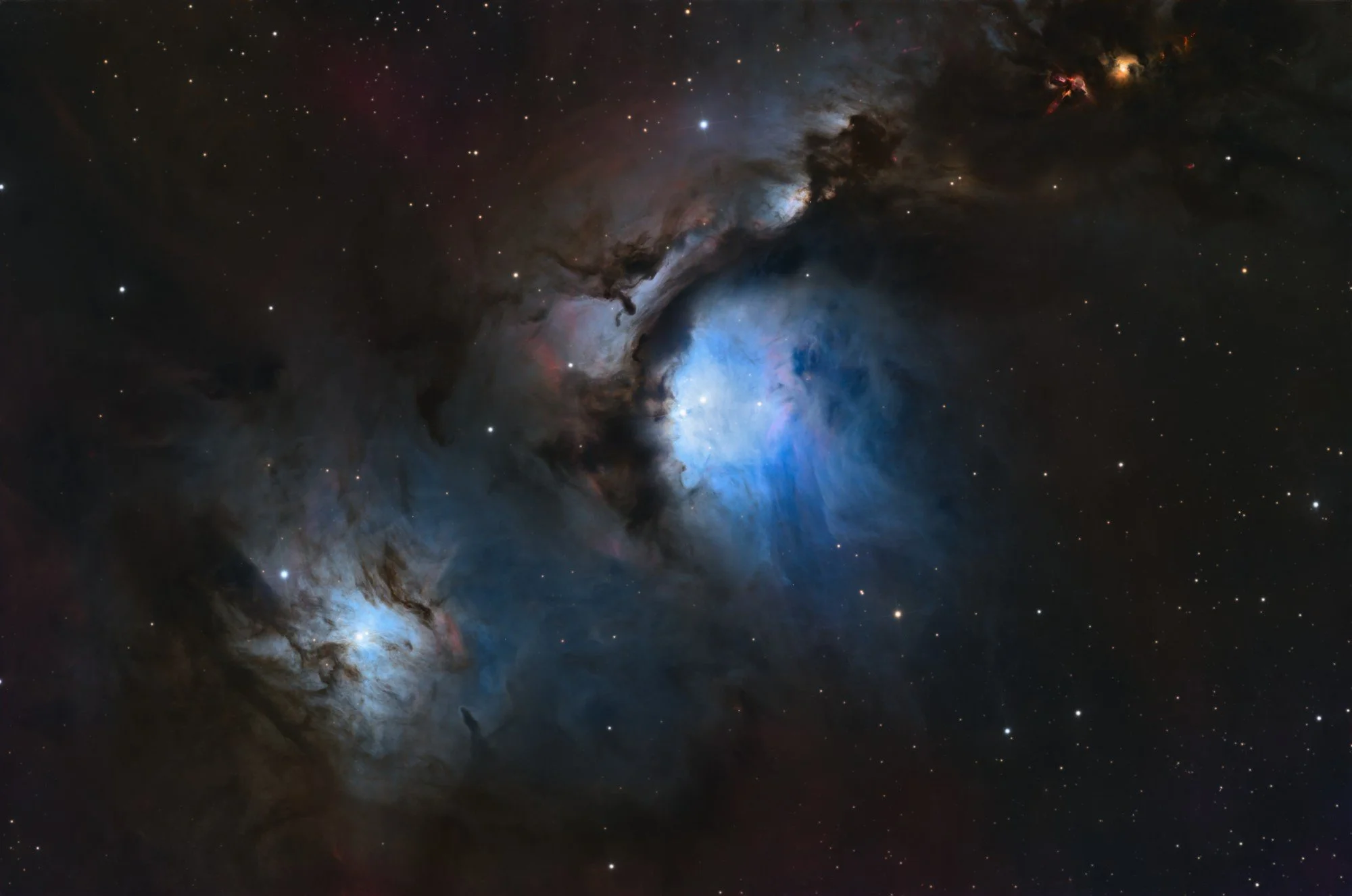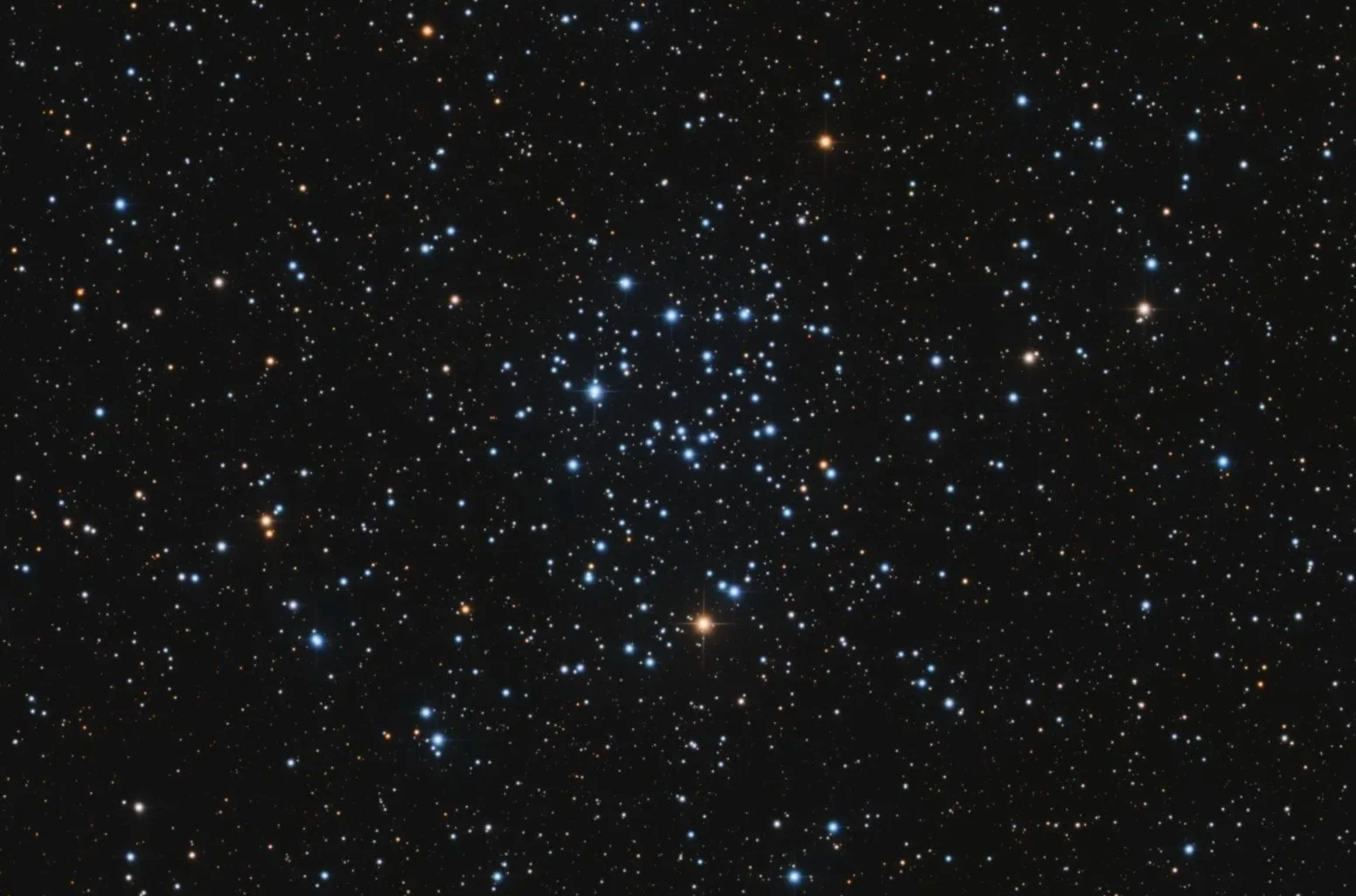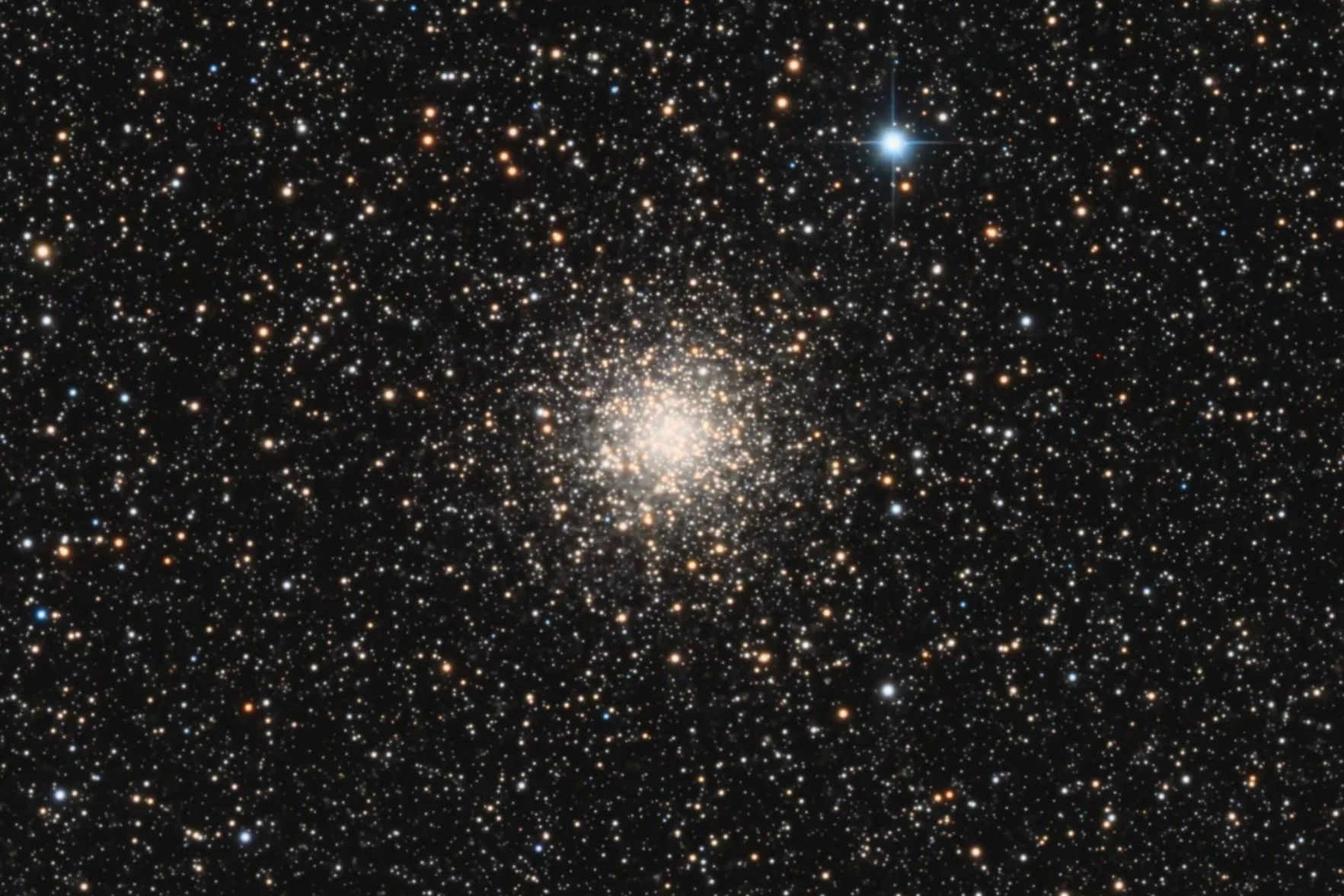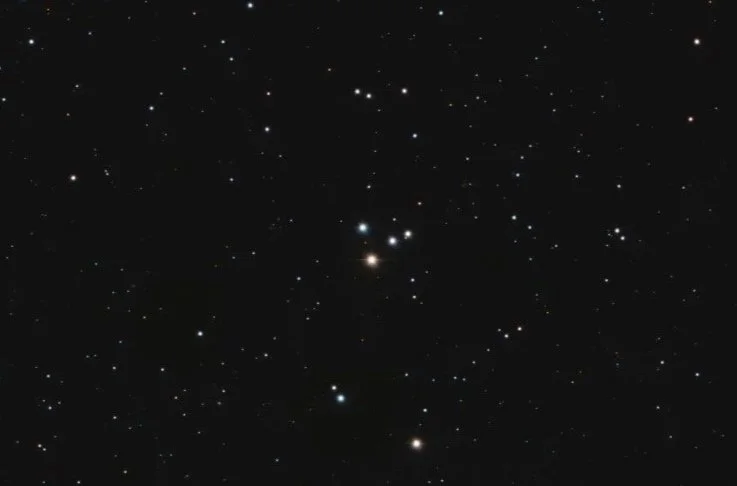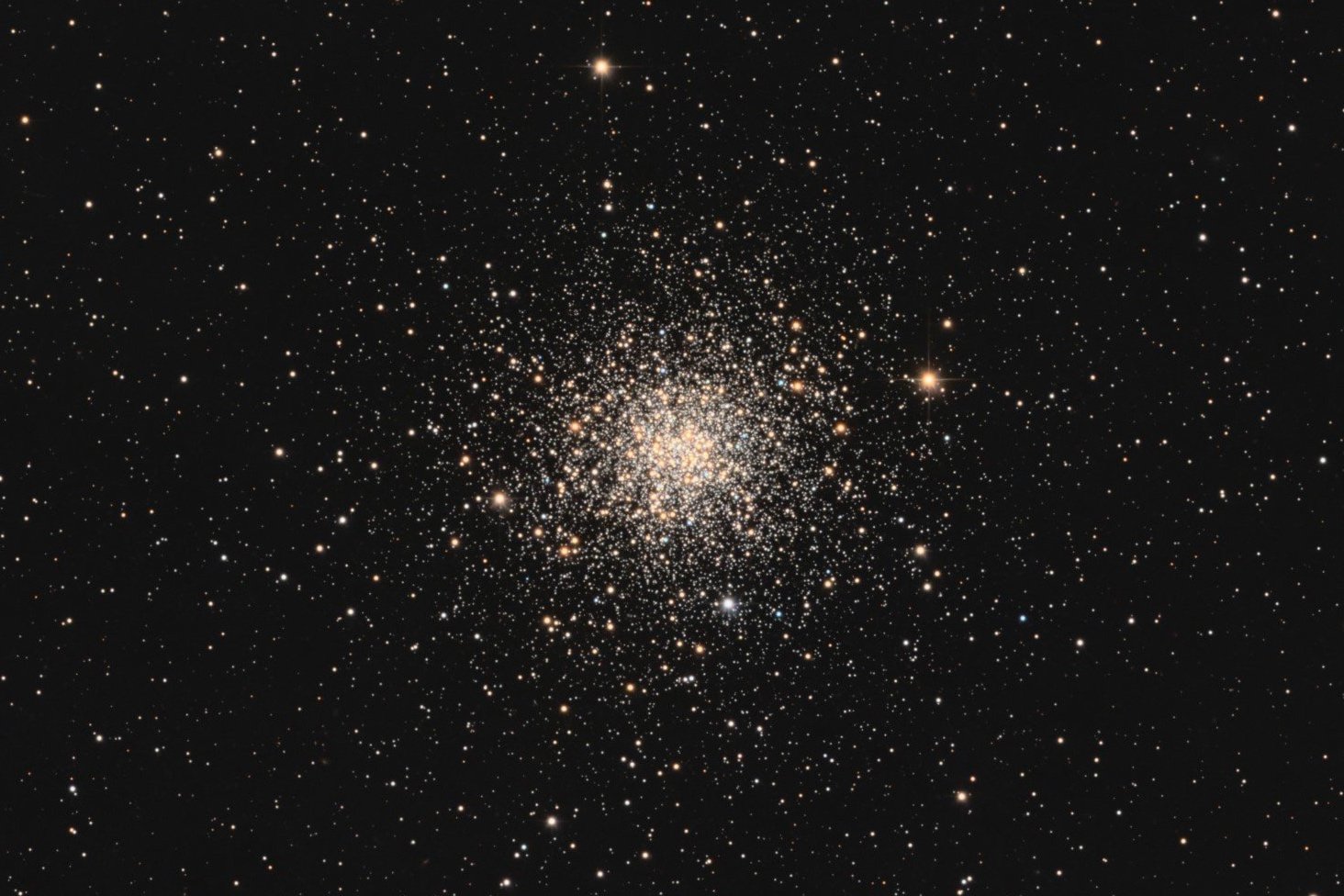
Images
M42 | M43
The Orion Nebula is one of those iconic objects that wants to be in any astrophotographers portfolio. This object was the first image taken here at AstroWorldCreations, back in 2018. A lot has changed since then, and a revisit of this impressive nebula was long overdue. While M42 is the actual Orion Nebula, the neighbouring M43 is always shot in the same image, but goes by the name or Mairan’s Nebula.
M41
Messier 41 is an open cluster in the constellation Canis Major. The cluster spans an area comparable to the size of the full moon and contains about 100 stars, including several red giants and white dwarfs. Discovered by Giovanni Batista Hodierna before 1654, M41 may have been observed by Aristotle as early as 325 BC. It is sometimes called the Little Beehive Cluster due to its resemblance to the Beehive Cluster (M44).
M78
M78 is a reflection nebula in the constellation Orion. It is the brightest diffuse reflection nebula in a group that includes NGC 2064, NGC 2067, and NGC 2071, all part of the Orion B molecular cloud complex. M78 is located approximately 1,350 light-years from Earth. M78 was discovered by Pierre Méchain in 1780, and included in Charles Messier's catalog of comet-like objects that same year.
M50
Messier 50, also known as NGC 2323 or the Heart-shaped Cluster, is an open cluster of stars in the constellation Monoceros. It was recorded by G. D. Cassini before 1711 and independently discovered by Charles Messier in 1772 while observing Biela's Comet. M50 is about 2,900 light-years away from Earth and spans 17.8 light-years. The cluster has 508 confirmed and 109 probable members and their combined mass is more than 285 solar masses.
M75
Messier 75 is a globular cluster in the constellation Sagittarius. It was discovered by Pierre Méchain in 1780 and included in Charles Messier's catalog that same year. M75 is about 67,500 light years away from Earth and is 14,700 light years away from, and on the opposite side of, the Galactic Center. Messier 75 is part of the Gaia Sausage, the hypothesised remains of a dwarf galaxy that merged with the Milky Way.
M72
Messier 72 is a globular cluster in the south west of the constellation of Aquarius. M72 was discovered by astronomer Pierre Méchain in 1780. Charles Messier looked for it 36 days later, and included it in his catalog. The cluster is approximately 55,000 lightyears away from the Sun. It has an estimated combined mass of 168,000 solar masses and is around 9.5 billion years old.
M30
Messier 30 (also known as NGC 7099 or the Jellyfish Cluster) is a globular cluster in the constellation of Capricornus. M30 is centred 27,100 light-years away from Earth and is about 93 light-years across. The estimated age is roughly 12.9 billion years. M30 makes one of the highest density regions in the Milky Way galaxy.
M55
Messier 55, also known as NGC 6809, or Specter Cluster, is a globular cluster in the south of the constellation Sagittarius. It was discovered by Nicolas Louis de Lacaille in 1752 while observing from what today is South Africa. Charles Messier observed and catalogued it in 1778. M55 is about 17,600 light-years away from Earth. It contains about 269,000 solar masses (M☉).
M25
Messier 25, also known as IC 4725, is an open cluster of stars in the southern constellation of Sagittarius. It was first discovered by Philippe Loys de Chéseaux in 1745 and it was included in Charles Messier's list of nebulous objects in 1764. M25 is at a distance of about 2,000 light-years away from Earth and is 67.6 million years old.
M73
Messier 73, also known as NGC 6994, is an asterism in the constellation Aquarius. For a long time it was thought to be a small open cluster, but detailed analysis in 2002 revealed that the stars had no direct relationship to each other and just happened to look like they were standing close together from our line of sight.
M26
Messier 26, also known as NGC 6694, is an open cluster of stars in the southern constellation of Scutum. It was discovered by Charles Messier in 1764. M26 spans a linear size of 22 light years across with a tidal radius of 25 light-years, and is at a distance of 5,160 light years from the Earth. The brightest star is of magnitude 11 and the age of this cluster has been calculated to be 85.3 million years.
M2
Messier 2 (NGC 7089) is a globular cluster in the constellation Aquarius. It was discovered by Jean-Dominique Maraldi in 1746, and is one of the largest known globular clusters. M2 is about 55,000 light-years distant from Earth. At 175 light-years in diameter, it is one of the larger globular clusters known.
M20
Messier 20, also called the Trifid Nebula, is an H II region in the north-west of Sagittarius. It was discovered by Charles Messier on June 5, 1764. Its name means 'three-lobe'. The object is an unusual combination of an open cluster of stars, an emission nebula (the reddish-pink portion), a reflection nebula (the blue portion), and a dark nebula (the apparent 'gaps' in the blue that cause the trifurcated appearance).
M23
Messier 23 is an open cluster of stars in the constellation Sagittarius. It was discovered by Charles Messier in 1764. It is in front of "an extensive gas and dust network". The cluster is centered about 2,050 light years away. Estimates for the number of its members range from 169 up to 414, with a directly-counted mass of 1,206 sun masses. The cluster is around 330 million years old.
M107
Messier 107, also known as the Crucifix Cluster, is a very loose globular cluster in the constellation Ophiuchus. It was discovered by Pierre Méchain in April 1782, and added to the Messier catalogue only in 1947 by Helen Sawyer Hogg together with three other objects found by Méchain. M107 is close to the galactic plane and about 20,900 light-years from Earth
M29
Messier 29, also known as the Cooling Tower Cluster, is a quite small, bright open cluster of stars just south of the central bright star Gamma Cygni in the constellation Cygnus. It was discovered by Charles Messier in 1764. Its age is estimated at 10 million years, as its five hottest stars are all giants of spectral class B0.

